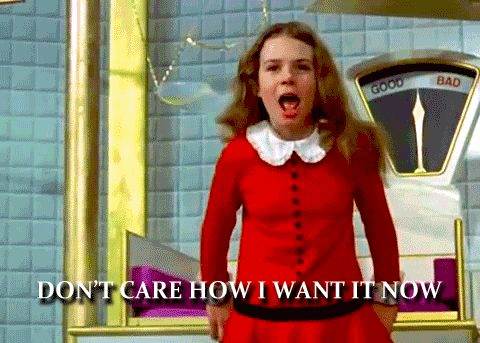
The recent conversations on the social media sites about small publishers and contests can be frustrating and scary to many new writers. It’s difficult to know what is accepted in the publishing community when you’re new (sometimes old) to it. Agents and publishers have voiced their concerns about writers not having a firm decision about which publishing path to take. Ask yourself: Do you want an agent? Do you want to self-publish? Go with a small publisher? Or go after the big guys? Whatever your path is, you must inform yourself about the proper way to do it. Without stepping on toes and ruining your chances. Also, make sure you research all offering agents and publishers. And before you sign anything, know what your signing.
I’m so thrilled to have Dahlia Adler as a guest on my blog today. Her post was inspired by the recent discussions we’ve had with each other, with agents, and with publishers. After hearing both agents’ and publishers’ concerns we decided that we should share that with our community of writers we love so much. Dahlia drew the shorter straw. Kidding. There’s no way I could say it as well as she does. So without further rambling, here’s one of my favorite peeps. (Yes, I’m trying to butter her up for a place on her sofa when I go to NY.)
On Querying and Submitting Simultaneously
by Dahlia Adler
Publishing has evolved into a pretty fascinating thing over the past decade—new publishers opening, old publishers folding or merging, the rise of self-publishing… the options seem pretty endless. And the best thing about having so many options is that truly, what’s the best option for one book might not be the best for another, and encompassing different methods in order to optimize your sales is now a very real—and, in my opinion, very freaking awesome—way to build a writing career.
But, notice I said “what’s the best option for one book might not be the best for the other.” As in, each book might have its own best path. What this means is, your contemporary NA might do best self-pubbed, while having an agent sub to big houses might be the best move for your YA psychological thriller, and subbing to a small press might be optimal for your YA fantasy.
What this doesn’t mean is that you should take that contemporary NA, self-pub it, and then query your self-pubbed book to agents for representation. And what this really, really doesn’t mean is that you should query that YA to agents while subbing it to small presses.
Unfortunately, there’s been a really huge rise of simultaneously querying agents and submitting to small publishers, and while I understand the reasons and intentions behind it (and we’ll get to the most understandable ones later), what’s getting lost is that it’s genuinely hurting many authors, agents, and editors.
What’s the big deal? you might think. Because of course you want to get published. Of course you want to see your book become a book. You want to give your book every shot you can. But as with all things, there’s a right way and a wrong way, and after speaking to both agents and editors on the subject, it’s become clear that the wrong way needs to stop.
Because here’s the big deal. It’s an agent’s job to submit your manuscript. It’s an agent’s job to send your manuscript to everywhere (s)he deems a worthy fit, and try to get you the best deal (s)he can. Agents wantto do their job, for you and for themselves; 15% of a six-figure deal is a whole lot more than 15% of a three-figure one. The crux of the author-agent partnership is a certain amount of faith that your agent knows what’s best for your work. So what kind of message does it send when you take that element out of the relationship? When you effectively say, “I’ve done the work of finding the best place for my manuscript”?
Now, I’ve made no secret of my feelings on small publishers, but in case it’s not clear by the fact that I’m publishing with one, let me make it clear—I love them. I love the amount of input I get, I love being so in the loop, I love how easy it is to communicate with them, and I love the personal attention. I have no regrets about going with a small publisher, and had no hesitation about doing so. That said, was going with a small publisher my agent’s first choice? Of course not—from a business perspective, as wonderful as they are, it will never be the highest-earning option. It’s an agent’s job to think big, to assume big, to aim for big, and to do so widely. That isn’t to say they shouldn’t sub to small presses too (though some do not, and if it’s something you think you want, that’s definitely something to discuss on The Call), but think about how you’d feel if an agent offered on your manuscript and strictly subbed small. What would you think that said about your agent’s confidence in your manuscript?
So why does this matter? Why should you care what I think? Because this isn’t strictly coming from me; it’s coming from agents, to me and Brenda—agents who no longer want to participate in contests, because they’re tired of having their submission options pulled out from under them. They’re tired of small publishers offering on submissions within a week of requesting and having five authors nudge them all at the same time, creating an impossible situation. And why should you care that they’re tired? Because it makes them say “no” when they might otherwise not have. Because sometimes, it’s just bad timing, and the crunch of only having a week, and the fact that an offer is already on the table, and the fact that they don’t feel it’s their place to tell you to pass on it on the chance they might be interested. And if an agent was what you really wanted in the long term—an agent who was going to widely sub your book—you just lost it for an offer you didn’t really want in the first place.
To quote one agent, “We want to help break authors out—to try to help them get to places they can’t get to by themselves. We want to put them in front of NY. Some books are good for digital and fit there. But the ones that would work well in NY are heartbreaking to pass on.”
And that’s exactly it—that’s what agents are for. So why take that away from them and from yourself?
You know who else it sucks for when you do this? The editors at those small presses. The ones who get really excited about your manuscripts, who get invested, only to get put on hold so you can find an agent. Yeah, they’re not any happier about this. Every editor I spoke to was absolutely on board with their authors using agents to negotiate contracts, just so there’s no confusion about that, but not with their offers being leveraged to secure agents who are then stuck in the position of negotiating a deal that’s already been accepted. As per one small pub editor, “An agent’s job is to get you the best possible deal, and when they are presented with one that is already accepted, their only option is to push back hard, and that will most likely put the editor in an awkward place.

Keep in mind that when a small press makes an offer they are already on your side, and they have likely spent some significant portion of time pitching your MS and being your advocate on the inside. If you are in the midst of talking with agents and have multiple queries out [and] need to use the offer to ask others for a final decision that is one thing. When you receive an offer is not the time to start looking for an agent. And vice versa, if you have an agent don’t sub on your own to publishers with an open call. Let them do that for you.”
In addition to hurting your relationship with your potential editor, doing this might actually be hurting the book itself. Books are scheduled for particular seasons, and there’s a specific amount of editorial time that’s been allotted to your book before it goes to press. The time you spend looking for an agent after getting an offer cuts into that editorial time, or time you could be spending on revisions. And no, you cannot demand an editorial letter before you sign a contract; if you don’t ultimately end up signing with that press after all, such as if you do land an agent and (s)he wants to sub more widely, that’s a ton of time and work spent on you that should’ve been spent on acquisitions and editing existing signed clients.
Now, that said, what happens if you do get an offer from a small press and want to find an agent?
“In pretty much every situation, honesty is always the best policy,” says another editor. “As a publisher, we want our clients to have every comfort in signing with us and usually recommend that if they don’t have an agent, they have a lawyer look at the contract. Depending on the publishing house, a pub offer is usually good anywhere from 30 days to a year, so it is absolutely appropriate to let the house know you’d like to use that time to find an agent to handle negotiations. Again, the biggest thing is just to keep communication open and be honest about your goals and plans.”
And finally, one more biggie from an editor:
“‘DON’T query small presses unless you are INTERESTED in publishing with one.’ It sounds so simple, but it happens all the time.”
Let me explain something about both agents and editors that seems to get lost in the shuffle a lot. It doesn’t matter how much power you’re tired of them having, and it doesn’t matter how curious you are about the strength of your work: Agents and editors are not test subjects. When you use one as “offer bait,” you ruin things for everyone. It means you’ve wasted time they could’ve spent reading subs from people who genuinely want this, or editing client manuscripts they’ve already signed.
Seriously, next time you think of using an agent or editor or even a contest as a test subject, think of that writer friend of yours who’d kill for the offer you just used as a “test.” Think of the fact that your actions might be talking agents out of doing contests. Think of the fact that your actions might be the ones to make a publisher decide to stop taking unagented submissions. And stop.
I’m sure not everyone will agree with what I’m saying here, and that’s fine; I’ve had enough frustrating conversations with writers to know that plenty of people out there will do whatever they wanna do. But I’ve also spoken to many I know would never knowingly hurt other writers, and to those, I hope this will help you think twice about the path you’re forging for thismanuscript.
To be clear, I genuinely understand the different innocent scenarios in which this happens.
I understand that sometimes you get an offer, genuinely want it, but are scared of negotiating the contract yourself. To that I say, be honest in your query that you are looking for an agent to negotiate this contract.This isn’t a situation where you’re leveraging or nudging to lure an offer. An agent can agree to handle it or not, and you can discuss on the call whether this is a one-time thing or the beginning of a partnership. Some agents are perfectly happy to do this. Alternatively, you can use a lawyer for the contract and just query with the next one; they’re not subbing this ms anyway, so wouldn’t you rather ensure they’re the perfect fit for the next one?
I understand that sometimes, contests have judges that are both agents and editors. To that I say, if you’re in one of these contests, pick one path and stick with it. If you want an agent, and you get requests from both, send to agents only. If an agent offers, you can always state that you had interest from that pub and let the agent choose whether to sub there. If you want a small pub offer, send to editors only, and then see previous paragraph if you receive one and want an agent to negotiate it.
I understand that it’s a really, really freaking tough business. But it’s tough all around, and the best we can do is try to work together so everyone gets a fair shot and awesome manuscripts become books. Seems like a pretty solid goal to me, no?








18 Comments
Jen McConnel · August 23, 2013 at 6:29 am
What a great post! I think the point about what’s right for THIS BOOK is huge, and a lesson many of us are learning on the fly as we go. It’s a great time to be a writer, but having a clear plan for each manuscript is really important.
Brenda Drake · August 23, 2013 at 6:57 am
Thanks, Jen, it overwhelming out there and we do sort go at by the seat of our pants. It’s great to be informed. 😉
Suzi · August 23, 2013 at 7:04 am
Terrific post. I bet a lot of writers just never thought about any of this, never realized how it does hurt others, and even themselves.
Brenda Drake · August 23, 2013 at 5:40 pm
I know I didn’t when I first started out – it can be overwhelming.
Teresa Robeson · August 23, 2013 at 8:16 am
Thank you for the great insights! I try to always keep in mind that whatever I do – writing or otherwise – always affects at least one other person in the world, if not a whole bunch (directly or indirectly). I love this well-written reminder, both for me and others to whom this idea has never occurred. 🙂
Brenda Drake · August 23, 2013 at 5:43 pm
Dahlia has a way with words!
Tina Boone · August 23, 2013 at 8:37 am
Great post. It answers a few questions I’ve had. You really sum it up well with: Pick one path and stick with it.
Brenda Drake · August 23, 2013 at 5:44 pm
Being well-informed really helps finding that path. Thanks for the comment!
Dahlia Adler · August 23, 2013 at 9:10 am
Thanks so much, everyone! And thanks, Brenda, for having me! Your gif-tastic post is way better 😉
Brenda Drake · August 23, 2013 at 5:44 pm
You say it so caring and straightforward. Thank you for doing it!
historywriter · August 23, 2013 at 1:38 pm
Good stuff. You’re right about the right path for your novel. I think the path I chose for my self-pub was the right one, but I’m querying agents for another novel because I don’t think self-pub is the right fit.
Brenda Drake · August 23, 2013 at 5:46 pm
It’s always a learning journey, isn’t – thanks!
Annette T Dodd · August 23, 2013 at 2:06 pm
I really appreciated the perspective here – thanks for posting! :o)
Heather Webb · August 24, 2013 at 6:55 am
Great post, Dahlia! I found myself nodding while reading this. 🙂
Kate Barsotti · August 24, 2013 at 8:48 am
Good points!
Stephsco · August 28, 2013 at 1:19 pm
Really good article, I tweeted it. I was conflicted on this for awhile given that my RWA peers kept asking me which editors I was submitting too; for category romance, authors often sub directly to editors and many work w/o agents, which is something I had to learn. I don’t write that though, I write YA and everything I read led me toward pursuing an agent relationship first. A small press contacted me after a contest and I told them I was seeking representation first. In between their email and mine I did a lot of spastic online research; I’d been (ill)advised by a few writers to “just sub to them anyway” but my gut said no. What if they offered? I would want an agent to negotiate the contract anyway, and for me it seemed like going about it backward.
Thanks for adding in some detail on this tricky topic!
Theresa Milstein · September 9, 2013 at 12:57 pm
Wow, this is a great post. I’m sharing! I realized I’ve made some mistakes in how I’ve queried as well.
Natalie Aguirre · September 9, 2013 at 1:50 pm
Great post. Thanks so much for all the advice.
Comments are closed.